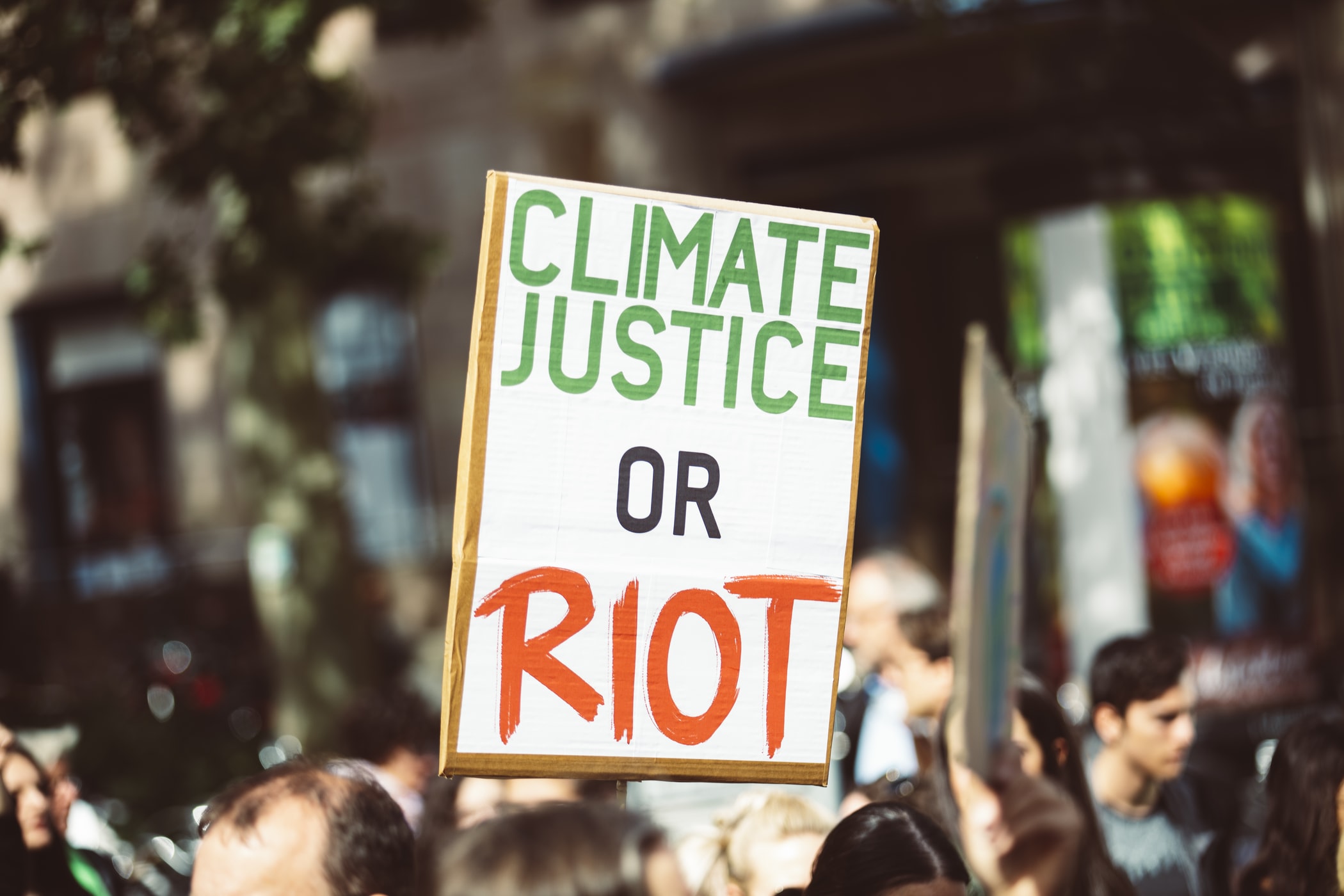
Climate change is already having a devastating impact on communities around the world. From hurricanes and floods to wildfires and droughts, extreme weather events are becoming more common and intense. And this is just the beginning. As the climate continues to change, these events will become even more frequent and destructive.
The social impacts of climate change are vast and far-reaching, affecting everything from our access to clean water and food supplies to our exposure to extreme weather events.
In this guide, we will explore some of the most important social impacts of climate change. We will also provide links to resources where you can find out more about how you can make an impact.
How the climate impacts our society
The social impacts of climate change can affect communities, the environment, and our future. Climate change can exacerbate poverty, inequality, and social injustice. It can also lead to increased conflict over resources and undermine human rights.
Extreme weather events
Climate change is already making the world a more dangerous place for people. It’s causing more extreme weather events like floods and droughts. These events can destroy homes, damage infrastructure, and contaminate water supplies with salt or chemical pollutants.
Extreme weather events are not just a problem in developing countries. In 2017, Hurricanes Harvey, Irma, and Maria relocated hundreds of people and caused billions of dollars in damage. They also exposed the vulnerability of US territories like Puerto Rico — which was already struggling economically — to climate change.
Access to food and water
Climate change can affect food supplies and access to clean water. It can bring on new vector-borne diseases, such as malaria or dengue fever, which are spread by insects that thrive in warmer temperatures.
Damage to animal habitats
It’s not just humans who suffer from a changing climate. Climate change is having an impact on wildlife around the world, too: drought causes species to compete for limited resources; rising sea levels encroach upon animal habitats; coral reefs bleach due to increased ocean acidity; animals may have difficulty adapting quickly enough to keep pace with rapidly changing temperatures.
Worsened mental health
Climate change is also having an impact on mental health, with some studies showing that people who have suffered from extreme weather events are more likely to develop depression and post-traumatic stress disorder (PTSD).
The impact of climate change on human health
Climate change can increase the risk of respiratory illnesses, heart disease, and numerous other health problems. It can also lead to food shortages and malnutrition, which can cause stunting in children or death from diseases like cholera.
Climate change is also contributing to the spread of vector-borne diseases like malaria or dengue fever. These diseases are transmitted by insects that thrive in warmer temperatures and can lead to death if left untreated.
The health effects of climate change include:
- Increased risk of infectious diseases and mental illness
- Changes in the distribution of disease vectors such as mosquitoes, ticks, and rodents
- Increased frequency or severity of extreme weather events such as floods, droughts, and heatwaves, and an increase in air pollution due to wildfires.
Climate change is already having a major impact on human health.
The World Health Organization (WHO) estimates that around 250,000 people lose their lives every year because of climate change-related issues like malnutrition, diarrhea caused by contaminated water supplies, or vector-borne diseases like malaria.
As temperatures rise even further over time, we can expect these numbers to increase significantly unless action is taken now.
The impact of climate change on social and economic stability
Climate change can also have a serious impact on social and economic stability. It can cause increased conflict over resources and undermine human rights.
In 2007, for example, the UN Security Council held its first-ever meeting to discuss the links between climate change and security.
The council’s report found that climate change was already exacerbating problems like poverty, inequality, and social injustice — leading to increased conflict and instability in many parts of the world.
The effects of climate change are not evenly distributed around the globe. Poorer countries and communities that have contributed least to global warming are often the most vulnerable to its impacts.
They often lack the infrastructure or financial resources to adapt to changing conditions. This leads to what has been called “climate injustice” — in which people in poorer countries suffer more from climate change, even though they may have contributed less to the problem.

The impact of climate change on food security
Food insecurity is a significant global challenge, with more than 800 million people going hungry each day. The impact of climate change on food security is likely to be one of the most serious social and economic consequences of global warming. Climate change will have both direct and indirect effects on food security.
The main direct effect of climate change on food security is through changes in average temperature and precipitation patterns that can affect crop yields, livestock production, fishing catches, and forestry resources. The main indirect effect is through increased competition for scarce water resources, which will limit agricultural production in many areas of the world.
For example, the World Bank reports that rising temperatures and changing weather patterns could reduce maize yields by up to 30% in some countries.
The impact of climate change on global conflict
The social and environmental impacts of climate change are well documented. But what about its potential to exacerbate conflict around the world?
Climate change could increase violence and social unrest, as well as poverty and economic inequality. It also found that climate change will have a disproportionate impact on poorer countries, which are less equipped to deal with its effects.
Climate change is a security threat multiplier whose full impacts are still not understood. Climate change could increase global conflict by making it harder for people to access food and clean water and exacerbating poverty and inequality.
Various aspects of climate change – such as changes in temperature, precipitation, or sea level – could impact social stability across the globe.
The risk of conflict increases most in areas where there is already political instability and weak governance. In these areas, droughts or floods can easily lead to protests or even armed conflict.
The effects of climate change on social interactions
Climate change has already had a major impact on social interactions around the world. In some cases, it has led to conflicts over scarce resources like water or land. It has also exacerbated existing inequalities between rich and poor countries and within countries themselves.
The most vulnerable people – including women, children, indigenous peoples, and the elderly – are often the worst affected by climate change’s social impacts.
Climate change can also lead to a loss of social capital. This is the network of relationships that people rely on for support and assistance. When communities are disrupted by extreme weather events or other climate-related problems, this social capital can be lost. This makes it more difficult for people to recover from disasters and can even lead to increased crime rates.
The good news is that many organizations are working hard to address the social impacts of climate change, such as programs that are committed to helping vulnerable communities become more resilient to climate shocks. And there are campaigns aimed at raising awareness of the issue and empowering people to take action.
The impact of climate change on the environment
Climate change has a direct and indirect effect on our environment.
Climate change and pollen
For example, rising temperatures mean that plants are blooming earlier than usual or not at all — which can threaten bee populations as well as other pollinating insects like butterflies and moths.
These pollinators play an important role in crop production by transferring pollen between flowers when they visit them to feed on nectar (a sugary liquid produced by flowering plants).
If we lose these pollinators, it could have devastating effects on global food security because so many crops depend entirely upon insect pollination to produce fruits and seeds, which will then be eaten either directly or indirectly through animal products such as milk or meat.
Access to clean drinking water
Climate change is also making it harder for us to access clean water. One in nine people around the world don’t have access to safe drinking water, and this number is only going to increase as the climate continues to change.
Droughts and floods caused by climate change are already making it more difficult for people to get their hands on clean water, and this is likely to get worse in the future.
A loss of biodiversity
The environmental impacts of climate change also include a loss of biodiversity. This means that there are fewer plants and animals in our environment because their habitats have been destroyed or they have died as a result of climate change.
The loss of biodiversity can have serious consequences for human health and our economy since we rely on plants and animals for food, medicine, and many other products like cotton clothing or paper.
The impact of climate change on our future
Climate change is already having a significant effect on human health and well-being, and it will continue to do so for generations to come. That means that we need urgent action now if we want to avoid the worst impacts of climate change in the future.
There are many ways that you can help prevent further damage: by driving less, eating more plant-based foods (which use fewer resources), or buying locally grown produce (which uses fewer fossil fuels).
And you can support groups like The Climate Reality Project, which are working hard every day towards solutions for a sustainable future.
Organizations that provide more information about the social impact of climate change
- WHO: Reports on climate change and human health
- UN Security Council: Reports on links between climate change and security
- Food and Agriculture Organization (FAO): Reports on the impacts of climate change on food security
- International Food Policy Research Institute (IFPRI): Reports on the future of food production under climate change
- University of California (UC): Reports on climate change and armed conflict
With Aspiration, you can make a difference with every purchase
Here at Aspiration, we’re dedicated to making the world better for all.
With every swipe of the Aspiration Zero credit card, you can help reduce your environmental impact, work towards becoming carbon-neutral, and earn cashback rewards of up to 1% on purchases.
Interested in learning more? Apply now!

